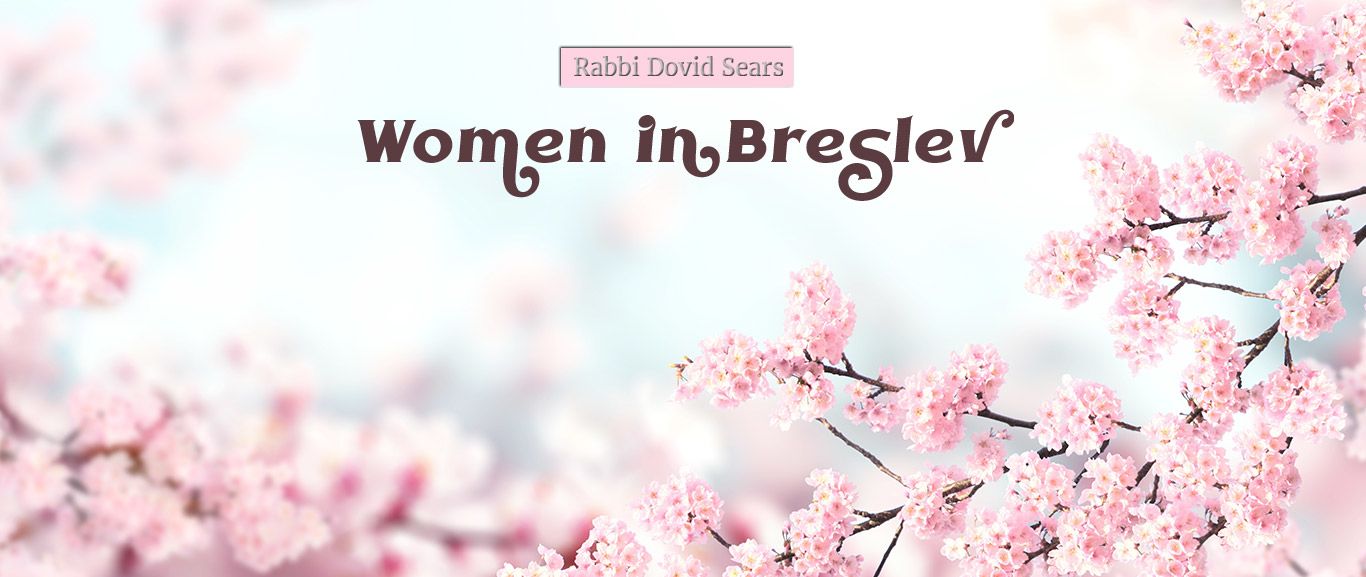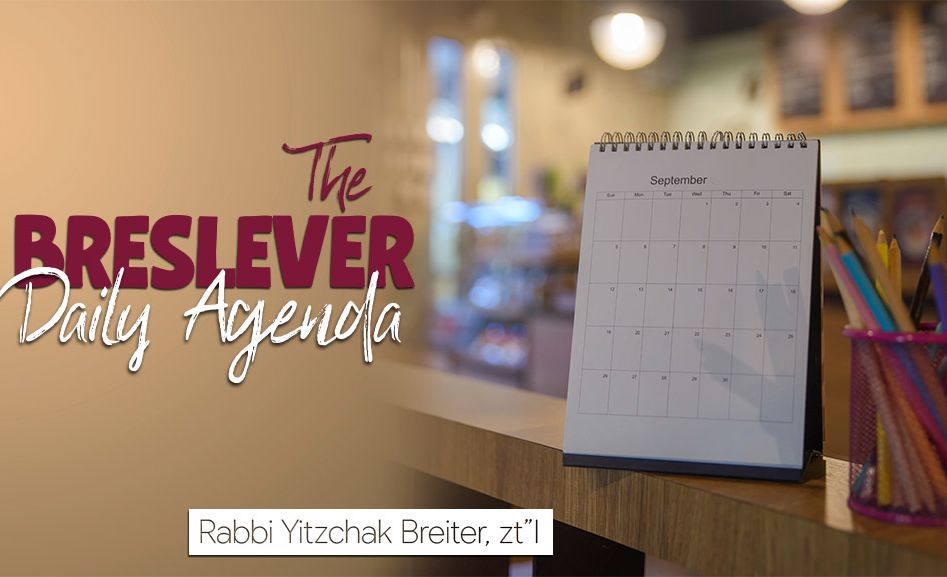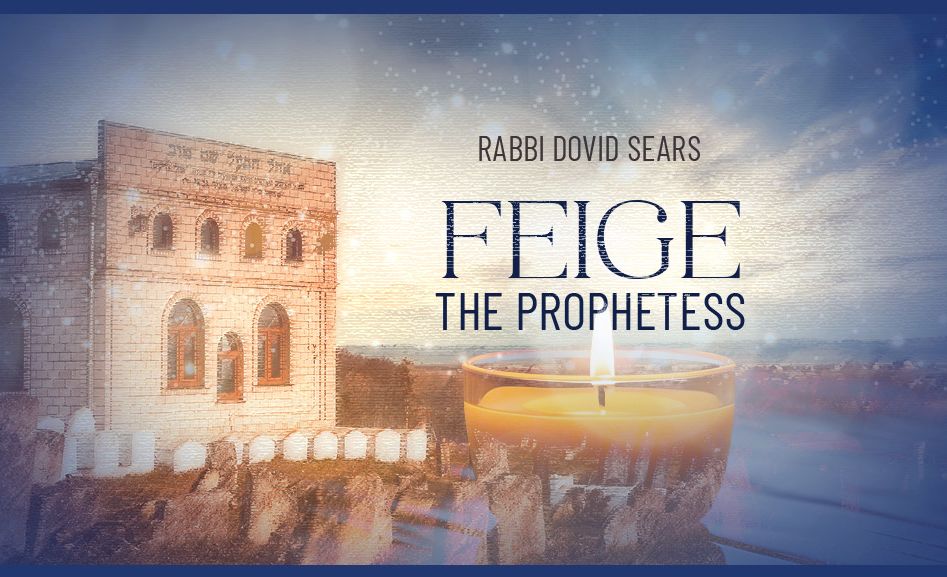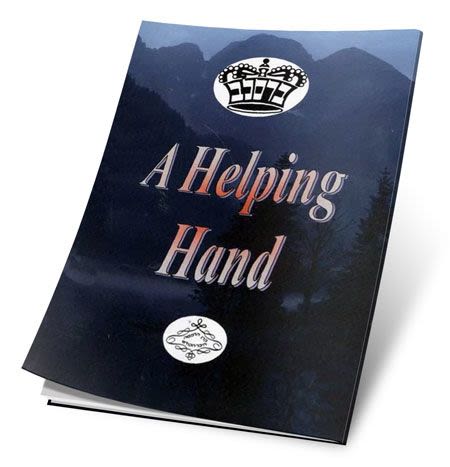
Women in Breslev
Rebbe Nachman admired the unique spiritual talents and sensitivities of women, making sure that his daughters were well educated in various areas of Torah.

Once Rebbe Nachman asked his followers: “Why don’t you make your wives Chassidistehs?” (Siach Sarfei Kodesh 2, 1-14). (In Yiddish, “Chassidistehs” means “women Chassidim.”) Breslov tradition tells us that Rebbe Nachman affirmed the unique spiritual talents and sensitivities of women. He saw to it that his daughters were well educated in various areas of Torah, and he praised them highly for their spiritual qualities (his daughter Sarah in particular). Indeed, Rebbe Nachman once said of his daughters that he “took their souls from the World of Atzilut” (“Divine Emanation,” also called the “World of Oneness”) (Chayei Moharan 274).
Although it would be intellectually dishonest to depict Rebbe Nachman as a precursor of the modern feminist movement, it would be equally wrong to assume that the Rebbe viewed women as “second-class citizens,” whose religious pursuits were restricted to baking kugel and cleaning up the debris after Shabbat. Rebbe Nachman’s express wish that his followers instruct their wives in the ways of Chassidut shows that it is entirely legitimate for women to follow his path of Divine service. This path may be described according to several basic points:
Prayer
Rebbe Nachman declared: “Gohr mein zach iz tefillah… The essence of my way is prayer” (Si’ach Sarfei Kodesh 1, 492; also cf. Likutei Moharan II:93). This is a universal practice that women also can relate to – especially the practice of hitbodedut (secluded meditation and prayer), which Rebbe Nachman extolled as “higher than everything” (Likutei Moharan II:25). Ideally, hitbodedut entails going out to the fields or forests at night, and speaking to G-d for a full hour in one’s own words. Women, however, should practice hitbodedut in a modest manner and in reasonably safe surroundings, such as in one’s home or backyard. If it is difficult to find time (and energy) in the evening, one may practice hitbodedut during the course of the day – even while performing household chores.
Rebbe Nachman praised women who attend the synagogue and take part in the public prayers (Siach Sarfei Kodesh 2, 1-663). In addition to reading the prayers in the Siddur, many Breslover women recite Reb Noson’s Likutei Tefillot, as well as other collections of prayers and techinot (supplications). The Breslov Research Institute has begun to translate the complete text of Likutei Tefillos under the title, The Fiftieth Gate. Shorter excerpts from Reb Noson’s prayers have been translated as The Flame of the Heart also published by Breslov Research Institute.
It is a time-honored practice for married women to pray for their families and for the entire Jewish people, especially while lighting the Shabbat or Yom Tov candles. Some Breslover Chassidistehs have the custom at that holy time to pray that Rebbe Nachman’s light should fill the world.
Torah Study
Although strictly speaking, women are exempt from the obligation to study Torah, in today’s Orthodox Jewish world, women are encouraged to study all parts of Torah relevant to their spiritual needs. This includes Tanach and its Commentaries, Midrash, Halacha, Mussar, and Chasidic works. Historically, Breslover women began to read the Sippurei Ma’asios, Rebbe Nachman’s thirteen mystical stories, as soon as they were published. Indeed, the Rebbe encouraged women of all backgrounds to do so, also declaring his stories to be a segula (mystical remedy) for those who are unable to conceive children (Likutei Moharan I:60).
Rebbe Nachman lived before there was a modern yeshiva system or religious schools for girls and women. Moreover, with the exception of the first edition of Likutei Moharan, published in 5568 (1808), his printed works were not available until after his passing. (He didn’t have a website, either.) Thus, we assume that his encouragement of his followers to teach their wives was not meant to restrict the study of his teachings to married women.
Family Life
Like Chava (Eve) in the Garden of Eden, a Jewish wife is called upon to be an eizer k’negdo (Genesis 2:18), a faithful partner to her husband, who respects and supports his efforts in Avodas Hashem. This is an important part of her Divine service, for which she receives Heavenly recompense (Kesubos 62b, Nedarim 50a, Berachos 17b). No less importantly, she should instill in her children emunah (faith) in Hashem and the tzaddikim, as well as honesty, diligence, and other good character traits. More effective than a mother’s words is her personal example. Thus, a woman should approach raising children as an important vehicle for her own spiritual development. Rebbe Nachman once remarked that hearing stories of tzaddikim at home as a child made an indelible impression upon him (Sichos HaRan 138). It is extremely beneficial for mothers to read such stories to their children.
Tzedakah and Chessed
Our sages declare the defining traits of the Jewish people to be “compassion, modesty, and kindness” (Yevamos 79a). Women of all ages should strive to perform deeds of chessed (kindness), especially by visiting the sick and by showing hospitality to guests. The latter is considered to be an even higher level of charity than giving a poor person money, because it is a more immediate and direct way of benefiting the receiver (Taanis 21a). Once the Rebbe discussed the loftiness of the mitzvah of hospitality with his daughter, Sarah. A young married woman, she became worried about her ability to fulfill this mitzvah properly. Observing her anxiety, her father added: “And what does it take to show hospitality? Another shtik’l kollitch – a slice of Challah – and a little more tablecloth” (Avanehah Barzel, Sichos V’Sippurim MiRabbenu z”l, 2; Siach Sarfei Kodesh 2, 1-97).
Rosh Hashanah – Uman
Some newcomers to Breslov assume that the Rosh Hashanah gathering in the city of Uman, near Rebbe Nachman’s grave site, was always a “for men only” event. However, prior to the Stalinist purges, women also attended prayer services in the Breslover Kloiz on Rosh Hashanah, as well as on Shabbat and the Yomim Tovim. In fact, it was the personal custom of Rav Avraham Sternhartz, the Baal Tokei’ah and Baal Musaf, upon leaving the synagogue to offer holiday greetings to the women waiting outside for their husbands and sons. The main reason women today are discouraged from traveling to the Rosh Hashanah gathering in Uman is because under present circumstances, it would be impossible to accommodate large numbers of women without serious breaches of tzniut (modesty). However, groups of women travel to Uman throughout the year, where they, too, recite the Tikkun HaKlalli, the ten psalms prescribed by Rebbe Nachman to heal the soul. Travel arrangements from America for such groups can be made through Nesia Travel (the proprietors, Mr. and Mrs. Shlomo Fried, are Breslover Chassidim) in the Borough Park section of Brooklyn, 718-633-3800.
To be continued.
(Reprinted with kind permission of http://www.nachalnovea.com/)








10/28/2022
Thank you. Very enlightening.